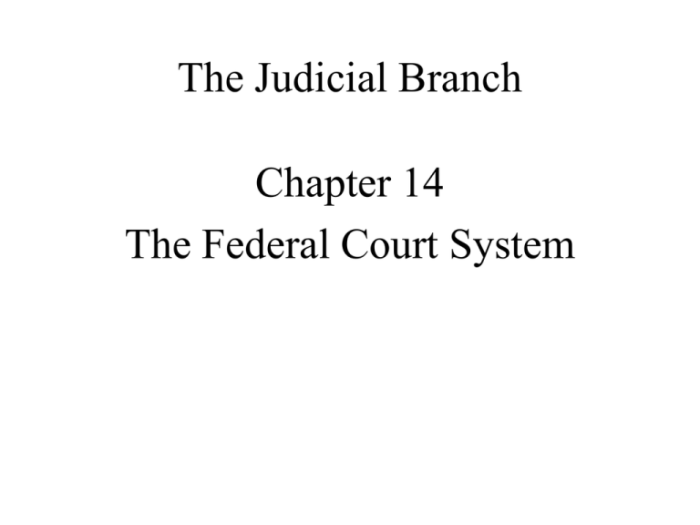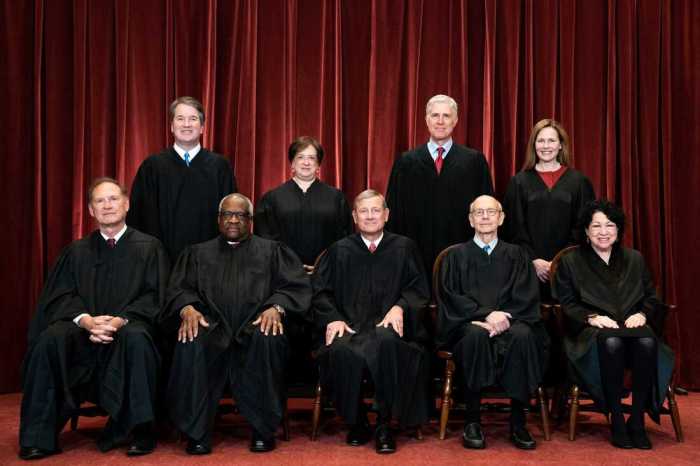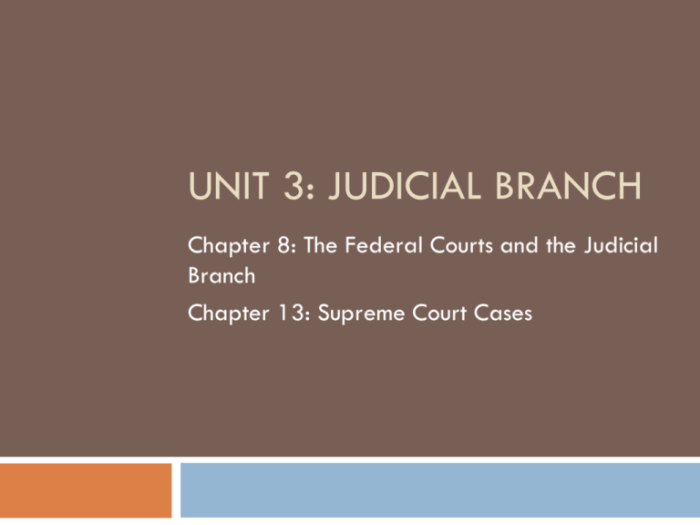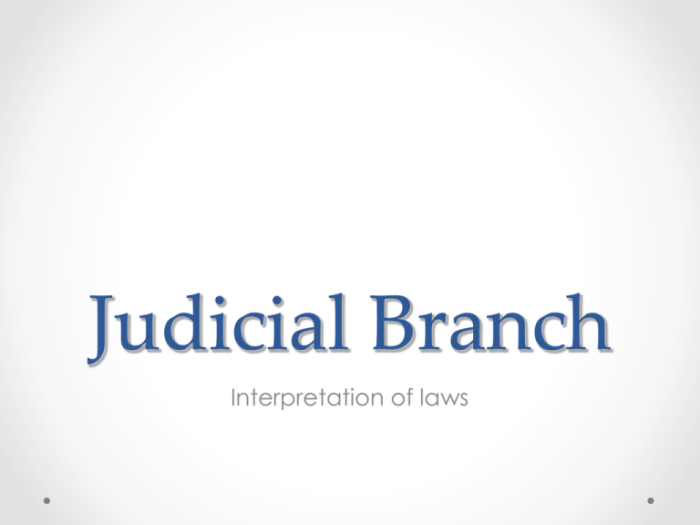Topic 2.8 the judicial branch – Topic 2.8: The Judicial Branch delves into the captivating world of law and justice, exploring the intricate workings of the third pillar of government. This comprehensive analysis delves into the judicial branch’s multifaceted role in safeguarding individual rights, resolving disputes, and shaping the fabric of society.
From the foundational principles of judicial review to the landmark cases that have shaped history, this exploration unveils the profound impact of the judicial branch on our daily lives. Prepare to be enthralled as we navigate the complexities of the legal system, unravel the mysteries of judicial processes, and witness the unwavering commitment to justice that defines this vital institution.
Role of the Judicial Branch: Topic 2.8 The Judicial Branch

The judicial branch plays a vital role in the government system by interpreting and applying the laws. It ensures that the laws are followed and that justice is served fairly.
A key concept in the judicial branch is judicial review. This power allows the courts to determine whether laws or government actions violate the constitution. Judicial review is crucial as it prevents the other branches of government from overstepping their authority and ensures that the rights of citizens are protected.
Topic 2.8 delves into the intricacies of the judicial branch, a pillar of any democratic society. This branch interprets laws, resolves disputes, and safeguards the rights of citizens. Interestingly, the stele of the sculptor Userwer , an ancient Egyptian artifact, provides valuable insights into the judicial processes of its time.
It showcases the significance of justice and the rule of law, reminding us that these principles have been fundamental to human civilization for millennia. Thus, the judicial branch continues to play a vital role in upholding these values and ensuring a just and equitable society.
Landmark Cases
Throughout history, the judicial branch has played a pivotal role in shaping society through landmark cases:
- Marbury v. Madison(1803): Established the principle of judicial review, affirming the power of the courts to declare laws unconstitutional.
- Brown v. Board of Education(1954): Declared racial segregation in public schools unconstitutional, paving the way for the desegregation of schools.
- Roe v. Wade(1973): Recognized a woman’s right to choose to have an abortion, sparking a decades-long debate on reproductive rights.
Structure and Organization of the Judicial Branch

The United States judicial system is a hierarchical structure consisting of federal and state courts. At the top of the hierarchy is the Supreme Court, followed by the federal appellate courts, and then the federal district courts. Each state also has its own court system, with state supreme courts at the apex.
Appointment and Confirmation of Judges, Topic 2.8 the judicial branch
Federal judges are appointed by the President and confirmed by the Senate. State judges are typically elected by the people or appointed by the governor.
Role of the Supreme Court
The Supreme Court is the highest court in the land and has the final say on all matters of federal law. It is also responsible for interpreting the Constitution and ensuring that laws passed by Congress and the states are constitutional.
Judicial Process and Procedures

The judicial process involves a series of steps that a legal case goes through from its initiation to its conclusion. It begins with the filing of a complaint by the plaintiff, who alleges that the defendant has wronged them in some way.
The defendant then has the opportunity to file a response, and the case proceeds through various stages, including discovery, trial, and judgment.
Adversarial System
The United States legal system operates on an adversarial system, in which each party is represented by an attorney who advocates for their client’s interests. The attorneys present evidence and arguments to support their case, and the judge or jury decides which side has the stronger case.
Due Process
Due process is a fundamental principle of the judicial system that ensures that all parties are treated fairly and have the opportunity to present their case. This includes the right to be informed of the charges against them, the right to an attorney, and the right to a fair trial.
Impact of the Judicial Branch on Society

The judicial branch plays a crucial role in shaping society, influencing both social and political issues. It serves as the guardian of individual rights and freedoms, ensuring that laws are interpreted and enforced fairly and consistently. Judicial decisions have the power to transform society, setting precedents and establishing legal frameworks that impact generations to come.
Role of the Courts in Protecting Individual Rights and Freedoms
The judicial branch is tasked with upholding the Constitution and protecting the fundamental rights of citizens. Through its decisions, the courts have played a pivotal role in safeguarding individual liberties, such as freedom of speech, religion, and due process of law.
By interpreting the Constitution and striking down laws that violate these rights, the courts have expanded the scope of individual freedoms and strengthened the foundations of a just and equitable society.
Challenges and Controversies Facing the Judicial Branch
The judicial branch is not immune to challenges and controversies. In recent years, it has faced criticism for its perceived activism, political influence, and public perception issues. These issues have raised concerns about the impartiality and effectiveness of the judicial system.
Judicial Activism
Judicial activism refers to the practice of judges using their power to make law rather than simply interpret it. Critics argue that judicial activism undermines the separation of powers and the role of the legislative branch in making laws. Supporters, on the other hand, contend that it is necessary to protect individual rights and ensure that the law keeps pace with societal changes.
Political Influence
The judicial branch is not entirely immune to political influence. Judges are appointed by the executive branch and confirmed by the legislative branch, which can create opportunities for political bias to creep into the judicial process. Additionally, judges may be influenced by public opinion or the desire to avoid controversy.
Public Perception
The public’s perception of the judicial branch has also come under scrutiny. Some surveys suggest that the public has declining confidence in the impartiality and effectiveness of the judicial system. This perception can be influenced by factors such as high-profile cases, media coverage, and political rhetoric.
FAQ Explained
What is the primary function of the judicial branch?
The judicial branch interprets and applies the law, resolves disputes, and ensures that justice is served.
How are judges appointed?
Judges are typically appointed by the executive branch and confirmed by the legislative branch.
What is the role of the Supreme Court?
The Supreme Court is the highest court in the land and has the power to interpret the Constitution and overturn laws that violate it.